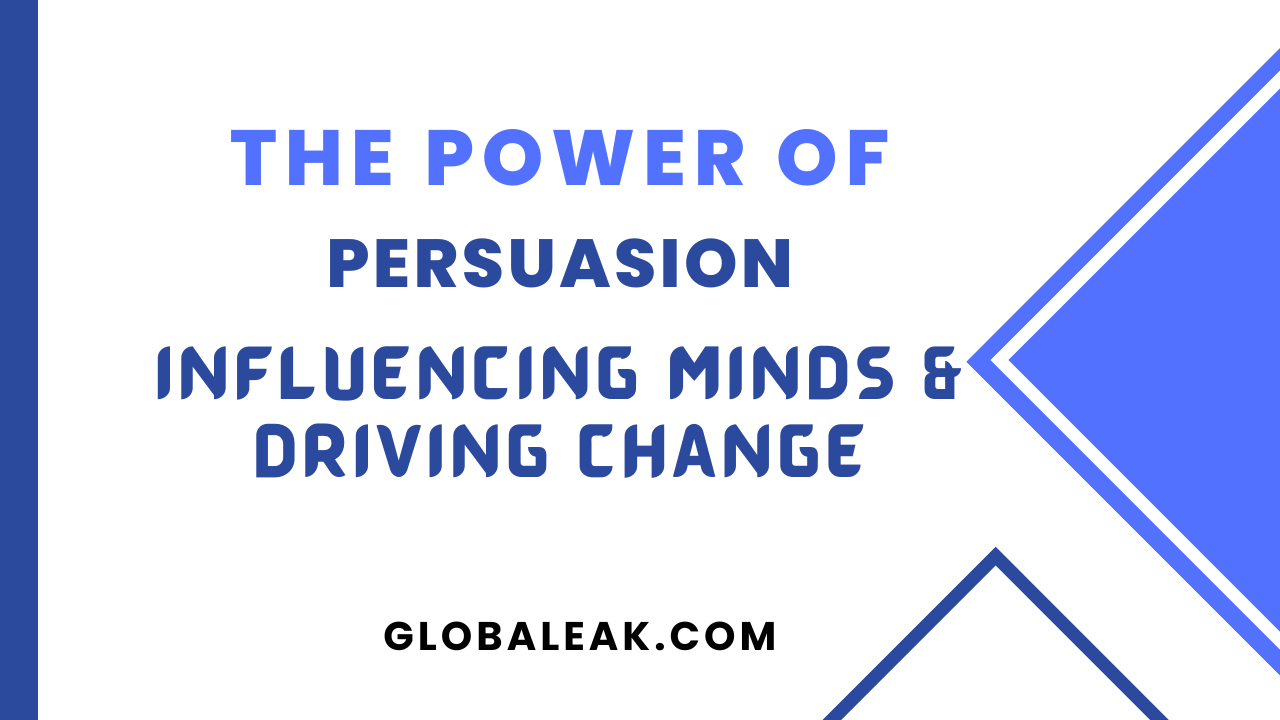Introduction:
The power of persuasion is a fundamental aspect of human communication and a skill that holds immense value in the realm of marketing. Persuasion allows marketers to influence consumer behavior, sway opinions, and ultimately drive action. Understanding the principles and techniques behind effective persuasion is crucial for creating compelling marketing campaigns. In this essay, we will explore the power of persuasion and how it can be harnessed to achieve marketing success.
I. The Psychology of Persuasion
- Understanding Human Decision-Making: Exploring the cognitive processes and psychological factors that influence decision-making.
- Persuasion Principles: Introducing the principles of persuasion, such as social proof, reciprocity, scarcity, authority, and consistency.
II. Establishing Credibility and Trust
- Building Trustworthiness: Strategies for establishing credibility and expertise in the eyes of your audience.
- Leveraging Social Proof: Using testimonials, reviews, and endorsements to showcase positive experiences and build trust.
- Appealing to Authority: Utilizing expert opinions and endorsements to reinforce your marketing claims.
III. Emotional Appeal and Connection
- The Power of Emotions: Understanding how emotions drive human behavior and decision-making.
- Storytelling: Using narratives to evoke emotions, create a connection with your audience, and make your marketing message memorable.
- Creating Desire: Tapping into the desires, aspirations, and fears of your audience to elicit emotional responses.
IV. Crafting Persuasive Arguments
- Developing a Strong Claim: Formulating a clear and compelling statement that captures the essence of your marketing message.
- Presenting Evidence: Supporting your claim with facts, statistics, research, and case studies to strengthen its credibility.
- Anticipating and Addressing Counterarguments: Identifying potential objections or opposing viewpoints and providing persuasive counterarguments.
V. The Art of Language and Delivery
- Choosing Words Wisely: Utilizing persuasive language, such as power words, vivid imagery, and rhetorical devices, to captivate your audience.
- Tone and Voice: Adopting a tone that resonates with your target audience and aligns with your brand identity.
- Delivery Channels: Selecting the appropriate channels, whether written, visual, or multimedia, to deliver your persuasive message effectively.
Conclusion:
The power of persuasion in marketing is undeniable. By understanding the psychology behind decision-making, establishing credibility and trust, appealing to emotions, crafting persuasive arguments, and mastering the art of language and delivery, marketers can create compelling campaigns that inspire action and drive results. Remember, effective persuasion is a combination of science, art, and empathy, as it involves understanding your audience’s needs, desires, and motivations. Harnessing the power of persuasion will enable you to connect with your target market, build lasting relationships, and achieve marketing success in an increasingly competitive landscape.
Read Also: How to Craft a Persuasive Marketing Content
📍 English Language Educator | Blogger & Content Strategist | 7+ Years in Educational Blogging
Nosheen Bashir is a dedicated English teacher and experienced blogger with over seven years of expertise in content creation and educational writing. Passionate about language, literature, and effective communication, she combines her teaching experience with blogging skills to create insightful, research-backed content that helps learners and educators alike.
🔹 Expertise & Achievements:
✔ English Language Education: A skilled educator with years of experience in teaching English grammar, literature, and communication skills to students of varying levels.
✔ Educational Blogging: Running a successful blog for 7+ years, delivering well-structured, engaging content on language learning, writing techniques, and academic success.
✔ SEO & Content Strategy: Specializes in creating high-ranking, authoritative articles that follow Google’s EEAT principles, ensuring content that is both informative and search-friendly.
✔ Student-Centric Approach: Committed to making English easier, engaging, and accessible, helping readers and students improve their language proficiency.
🚀 With a passion for teaching and writing, Nosheen Bashir is dedicated to crafting educational content that empowers students, teachers, and language enthusiasts worldwide.










